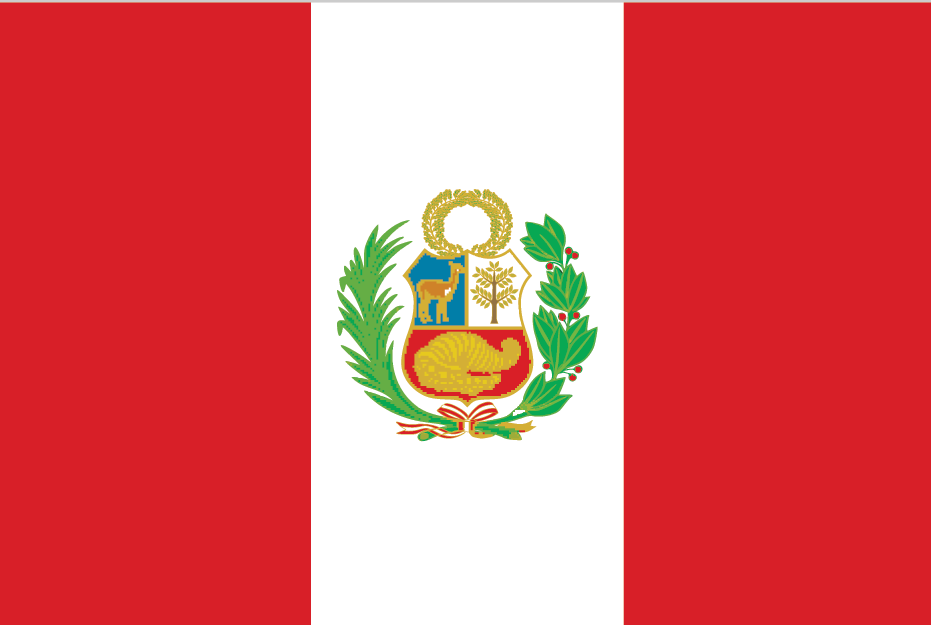
Sustainability Efforts
Country: Peru
Explore sustainability efforts in Peru. The United States Environmental Protection Agency (“EPA”) said it well when they state:
“Sustainability is based on a simple principle: Everything that we need for our survival and well-being depends, either directly or indirectly, on our natural environment. To pursue sustainability is to create and maintain the conditions under which humans and nature can exist in productive harmony to support present and future generations.”
About Peru
Nestled in the Andean highlands and stretching to the Amazon rainforest, Peru stands as a testament to the extraordinary diversity of landscapes and cultures. As a nation rich in natural resources and cultural heritage, Peru’s journey toward sustainable development faces a delicate balance between economic progress and environmental conservation. From combatting poverty and improving healthcare to preserving its biodiversity and promoting renewable energy, Peru’s pursuit of sustainability embraces a multi-faceted approach. In this exploration, we embark on a journey through Peru’s efforts to build a more equitable and resilient future for its people and the planet. Sustainability efforts in Peru will enhance the country’s future.
Sustainability Efforts
Toggle each button below to “open” and “close” the presented data.

Peru has made significant strides in reducing poverty in recent years, with the poverty rate declining steadily. Government-led social programs, such as Juntos and Qali Warma, have played a crucial role in providing financial support and food security to vulnerable communities.

Despite progress, food insecurity remains a challenge, particularly in remote regions. The nation's focus on agricultural development, supporting small-scale farmers, and enhancing nutrition programs contribute to ensuring food availability and accessibility.

Access to quality healthcare is a priority for Peru. The government has invested in healthcare infrastructure and expanded health services to underserved areas. The commitment to preventive care and public health initiatives enhances well-being and life expectancy

Peru recognizes the importance of education in its development agenda. The government's initiatives to improve educational standards and increase enrollment rates aim to empower future generations and foster economic progress.

Promoting gender equality remains a crucial goal for Peru. The nation's efforts to empower women economically and politically, coupled with campaigns against gender-based violence, are vital steps toward achieving a more inclusive society.

Access to clean water and sanitation remains a challenge, particularly in rural and indigenous communities. The government's focus on water infrastructure development and sanitation initiatives aims to improve public health and well-being.

Peru's vast renewable energy potential, including hydro, solar, and wind power, presents opportunities for promoting clean energy. The nation's commitment to sustainable energy initiatives7: Affordable Clean Energy contributes to reducing greenhouse gas emissions and enhancing energy security.

Peru's dynamic economy has shown resilience and growth, driven by mining, agriculture, and tourism. The government's focus on economic diversification and infrastructure development aims to create sustainable and inclusive economic growth.

Innovation and technological advancements play a vital role in Peru's economic transformation. The nation's support for research and development initiatives and fostering an innovation-friendly environment contributes to increased competitiveness.

Addressing social inequalities is central to Peru's development agenda. Targeted social programs and efforts to promote social inclusion are essential in ensuring equitable access to opportunities and services for all citizens

Peru's urban centers grapple with urbanization challenges, including congestion and inadequate infrastructure. Sustainable urban planning and investment in public transportation aim to create livable and resilient cities.

Promoting responsible consumption and production patterns is fundamental to safeguarding Peru's natural resources and biodiversity. Initiatives to promote sustainable agricultural practices and reduce waste contribute to responsible resource utilization.

As a nation vulnerable to climate change, Peru is committed to climate action and environmental protection. The nation's focus on forest conservation and biodiversity preservation plays a pivotal role in global climate efforts.

Peru's marine and freshwater ecosystems are critical to its ecological balance and fisheries. The nation's dedication to conserving marine biodiversity and protecting aquatic habitats contributes to sustainable fisheries and livelihoods.

Promoting peace and justice is integral to Peru's sustainable development. The government's commitment to upholding the rule of law and combating corruption fosters stability and social cohesion.

Peru's diverse ecosystems and natural wonders hold cultural and ecological significance. The nation's efforts to preserve its rainforests, mountains, and wildlife underscore its dedication to environmental conservation.

Peru recognizes the importance of partnerships in achieving sustainable development. Collaboration with international organizations and neighboring countries strengthens the nation's capacity to address shared challenges and leverage resources.
As Peru’s path to sustainable development unfolds, the nation stands at the crossroads of a brighter future for its people and its diverse natural heritage. By nurturing economic growth while embracing environmental conservation, Peru exemplifies a vision of progress that values social inclusivity, innovation, and responsible resource stewardship. With steadfast determination and global collaboration, Peru’s journey holds the promise of creating a more prosperous and resilient society for its citizens and the world.



